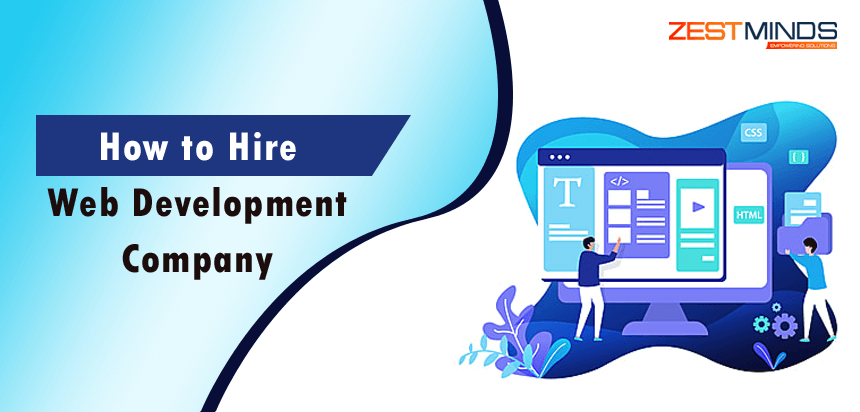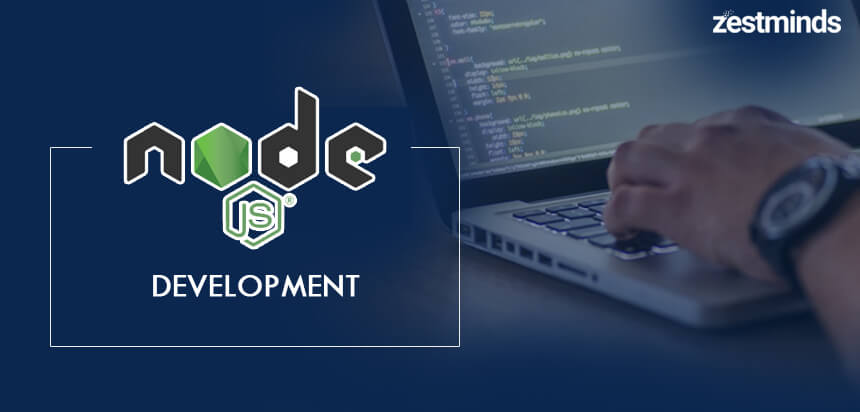The Ultimate Guide to Choosing the Right E-commerce Platform: Shopify vs. WooCommerce vs. Magento vs. BigCommerce
Choose the best e-commerce platform for your business. Compare Shopify, WooCommerce, Magento, and BigCommerce in our ultimate guide. Find out more!
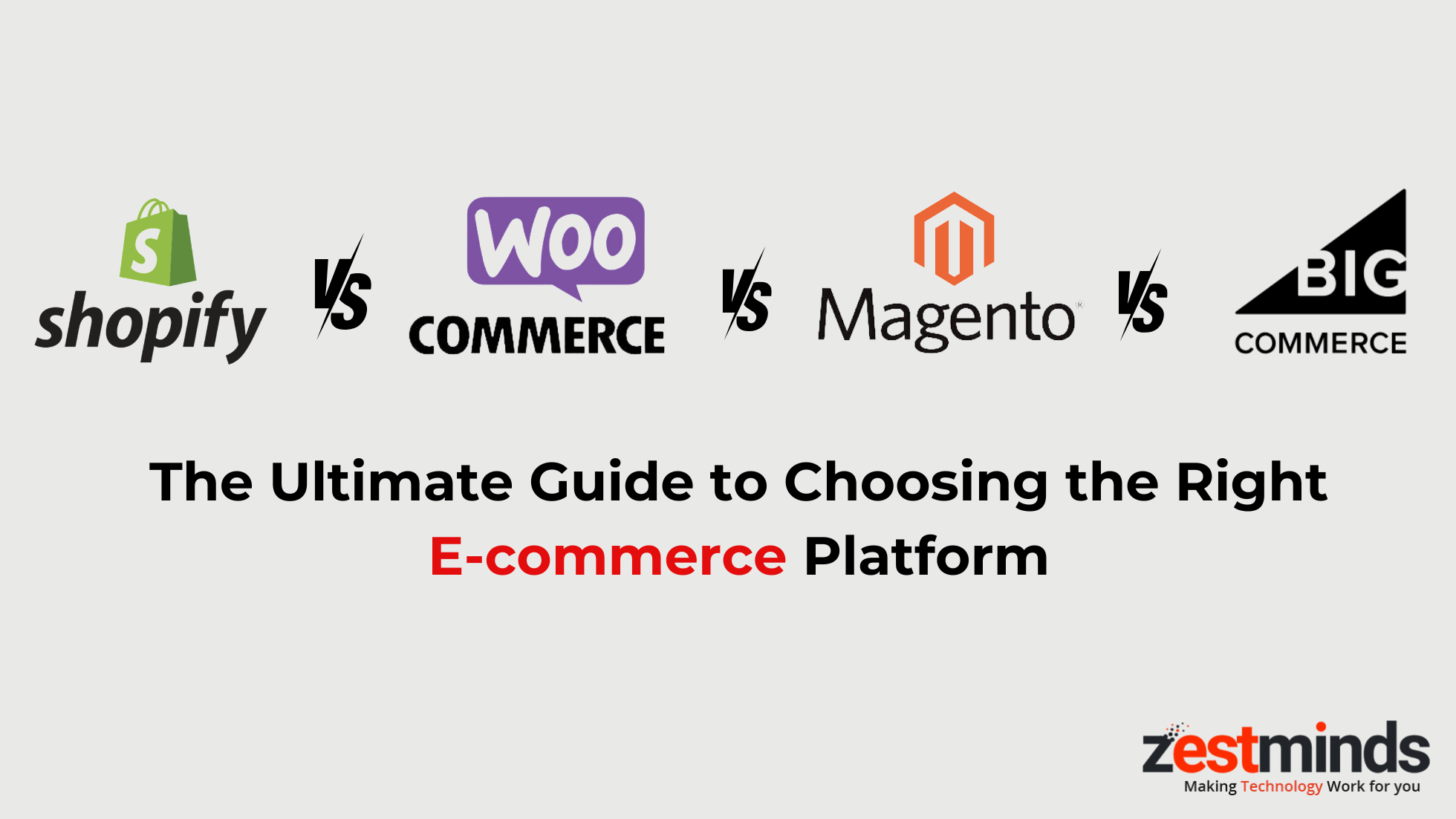
If you’re planning to start an online store, choosing the right eCommerce platform is a big decision. You’ve probably heard of WooCommerce, Magento, BigCommerce, and Shopify, but which one is best for your business?
Each platform offers something different. WooCommerce works well with WordPress, Magento is great for large businesses, BigCommerce has built-in features, and Shopify is beginner-friendly. But with so many choices, how do you pick the right one? Don’t worry—we’ll break it all down for you in this blog, so you can make the best decision for your online store!
eCommerce Platforms Explained
Online shopping is growing faster than ever! In 2024, U.S. online sales hit a record $1.12 trillion, marking a 7.4% increase from the previous year. With eCommerce expanding rapidly, picking the right platform for your online store is a crucial first step. Once you make the right choice, running your business becomes much easier! To help you decide, we’ve done the research for you. In this guide, we’ll compare the top eCommerce platforms, highlighting their strengths and limitations, so you can find the perfect fit for your business.
So, Let’s jump right in!
Shopify vs. WooCommerce vs. Magento vs. BigCommerce: Which One is Right for You?
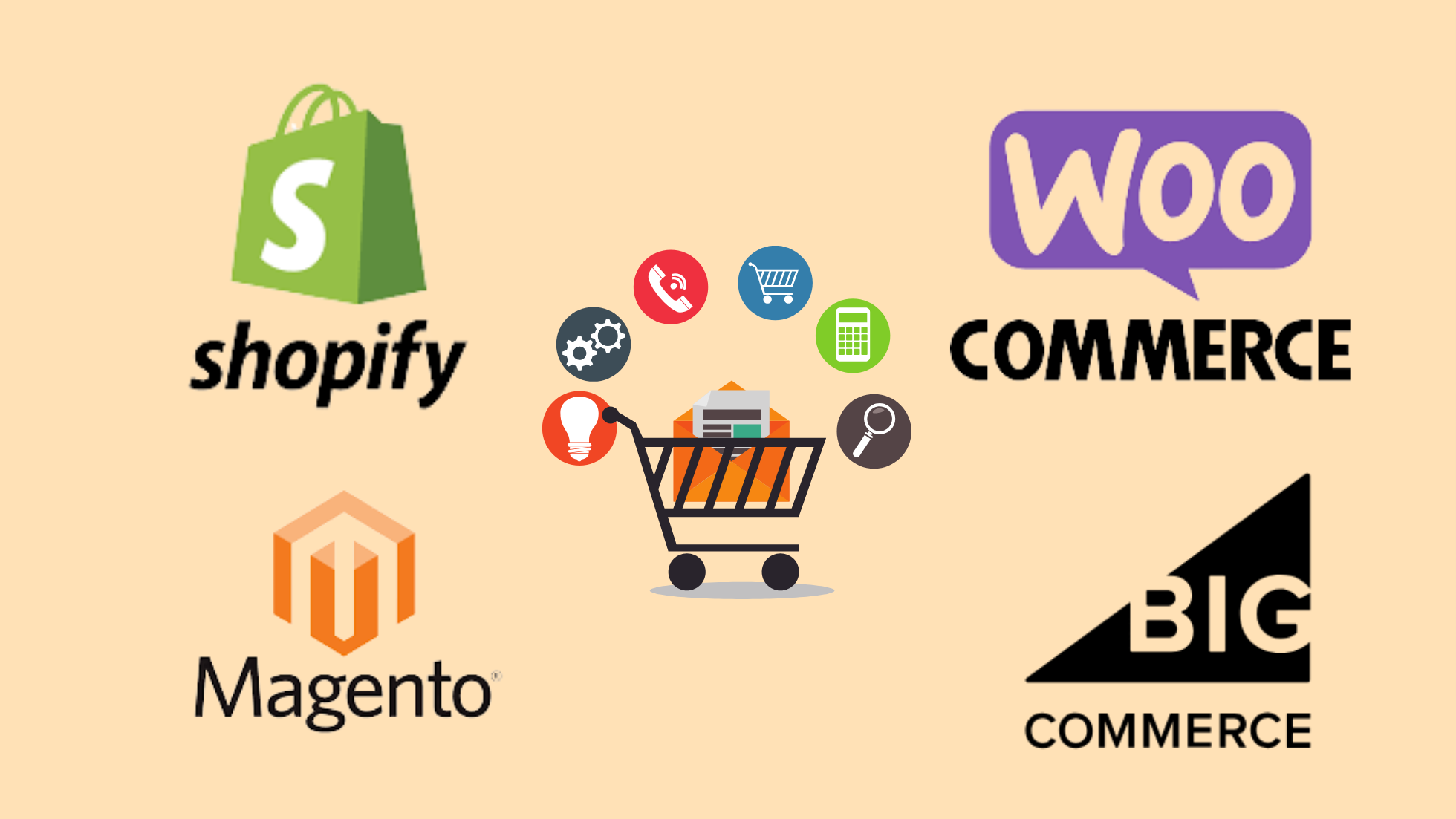
Choosing an eCommerce platform is a crucial decision that affects how your online store runs and grows. There are many options out there, but four of the most popular choices are Shopify, WooCommerce, Magento, and BigCommerce. Let’s take a closer look at each platform, their features, and how they compare.
1. Shopify – Simple & Beginner-Friendly
Shopify is one of the easiest platforms for setting up an online store. It provides everything you need to start selling online, including custom themes, apps, and built-in payment processing. Shopify’s user-friendly interface makes it perfect for new businesses that want a professional-looking store without dealing with technical complexities. It also supports integrations with platforms like Facebook, Instagram, and TikTok, making it great for social media-driven businesses.
2. WooCommerce – Flexible & WordPress-Friendly
WooCommerce is a free and open-source eCommerce platform built for WordPress websites. It’s a popular choice because it’s easy to install, highly customizable, and works well for selling both physical and digital products. Whether you’re running a small business or looking to scale, WooCommerce provides a user-friendly interface, a vast selection of plugins, and full control over your store.
3. Magento – Powerful & Scalable for Large Businesses
Magento is an advanced eCommerce platform known for its powerful features and high-level customization. With over 140,000 online stores using Magento in 2024, it’s a top choice for growing businesses. Major brands like Walmart and Best Buy rely on Magento because of its flexibility and ability to handle large-scale operations. However, it requires more technical expertise, making it ideal for businesses with in-house developers or access to professional support.
4. BigCommerce – Feature-Rich & Built for Growth
BigCommerce is a cloud-based platform that allows businesses to create and manage an online store with ease. It comes with built-in tools to help businesses expand, automate, and streamline operations. BigCommerce supports multiple sales channels, integrates with marketplaces like Amazon and eBay, and provides a variety of customization options. Whether you’re a startup or an established brand, BigCommerce offers scalability without the need for extra plugins.
Time to break down each platform in detail!
Shopify – A Hassle-Free Way to Start Selling Online
Shopify is a cloud-based eCommerce platform that makes it easy for anyone to set up an online store, manage products, and accept payments without needing technical expertise. It supports over 20 languages and allows transactions in 200+ currencies, making it a great choice for businesses targeting customers worldwide.
Shopify is known for its simplicity and ease of use, making it an ideal option for beginners who want to launch their store quickly. With a variety of themes, apps, and built-in marketing tools, Shopify helps businesses create a professional-looking store with minimal effort.
Customization & Store Design
One of Shopify's biggest strengths is its wide range of design options. Whether you want a simple store or something highly customized, Shopify offers both free and paid templates that can be adjusted to match your brand. You can also add apps from the Shopify App Store to enhance your store's features, such as customer reviews, live chat, and email marketing tools.
Easy Payment Processing & POS System
Shopify makes accepting payments seamless by supporting multiple payment methods, including credit cards, digital wallets, and alternative payment options. One of its standout features is the Shopify POS (Point of Sale) system, which allows businesses to sell both online and in physical stores while keeping track of all transactions in one place.
Affordable & Beginner-Friendly Setup
Starting an online store with Shopify requires a monthly subscription, giving you access to an admin panel where you can manage products, orders, and customer data. Unlike some platforms, Shopify also handles hosting and security for you, meaning you don't need to worry about software updates or server maintenance.
With unlimited product listings and storage, Shopify is designed to grow with your business. Whether you're a small startup or an expanding brand, it provides the flexibility to scale up when you're ready.
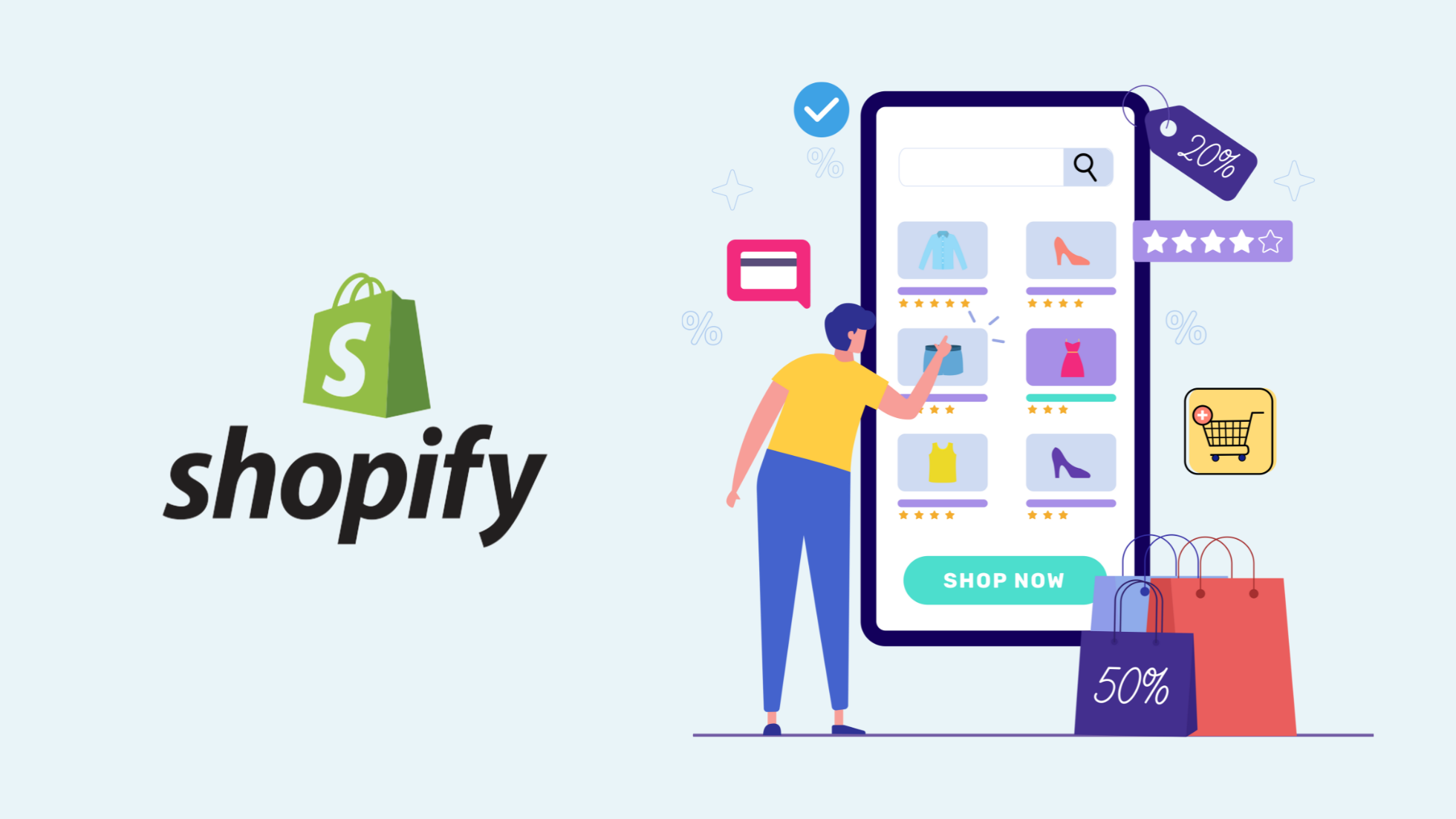
Key Features of Shopify
- User-friendly interface that makes store management simple.
- Quick and easy setup, even for those with no technical experience.
- Abandoned cart recovery to remind customers about incomplete purchases.
- Mobile-friendly themes that ensure your store looks great on any device.
- Unlimited bandwidth & storage, perfect for businesses planning to expand.
- Built-in POS system for selling both online and in-store.
Pros of Using Shopify
- SEO and marketing tools included for better online visibility.
- Supports dropshipping for businesses that don't hold inventory.
- Built-in analytics tools to track sales and customer behavior.
- High security and reliability with Shopify-managed hosting.
- Customizable themes & extensive app integrations.
- Fast loading speeds for a smooth shopping experience.
Cons of Using Shopify
- Higher costs compared to some other platforms.
- Limited built-in content marketing tools for blogs.
- Customization options are somewhat restricted without advanced coding.
- Doesn't include email hosting, so you need a separate email provider.
- Switching platforms later can be complicated if you decide to move away from Shopify.
WooCommerce – A Popular Choice for Online Stores
WooCommerce is one of the most widely used eCommerce platforms, especially for those who have a WordPress website. It allows you to turn your website into a full-fledged online store with ease. Since it's built on WordPress, it supports over 1,500 plugins, giving you plenty of ways to customize and expand your store's functionality.
With WooCommerce, you can sell both physical and digital products, manage inventory, and even integrate with marketplaces like Amazon and eBay. Whether you're just starting out or running a large-scale business, WooCommerce offers the flexibility to grow with you.
Cost & Setup: What to Expect
One of the biggest reasons for WooCommerce's popularity is that it's free to use—but there are some costs involved in setting up and maintaining your store. You'll need:
- A domain name (your website's address, like yourstore.com).
- A hosting plan to store your website's data.
- An SSL certificate to secure your site and allow safe online transactions.
If you plan to accept credit card payments, SSL certificates are a must for secure transactions. Many hosting providers include them in their plans, but if not, you'll need to purchase one separately.
WooCommerce also offers optional paid extensions for extra features, such as advanced payment gateways, shipping options, and marketing tools. The total cost will depend on your specific needs, but overall, WooCommerce remains one of the most budget-friendly eCommerce solutions compared to other platforms.
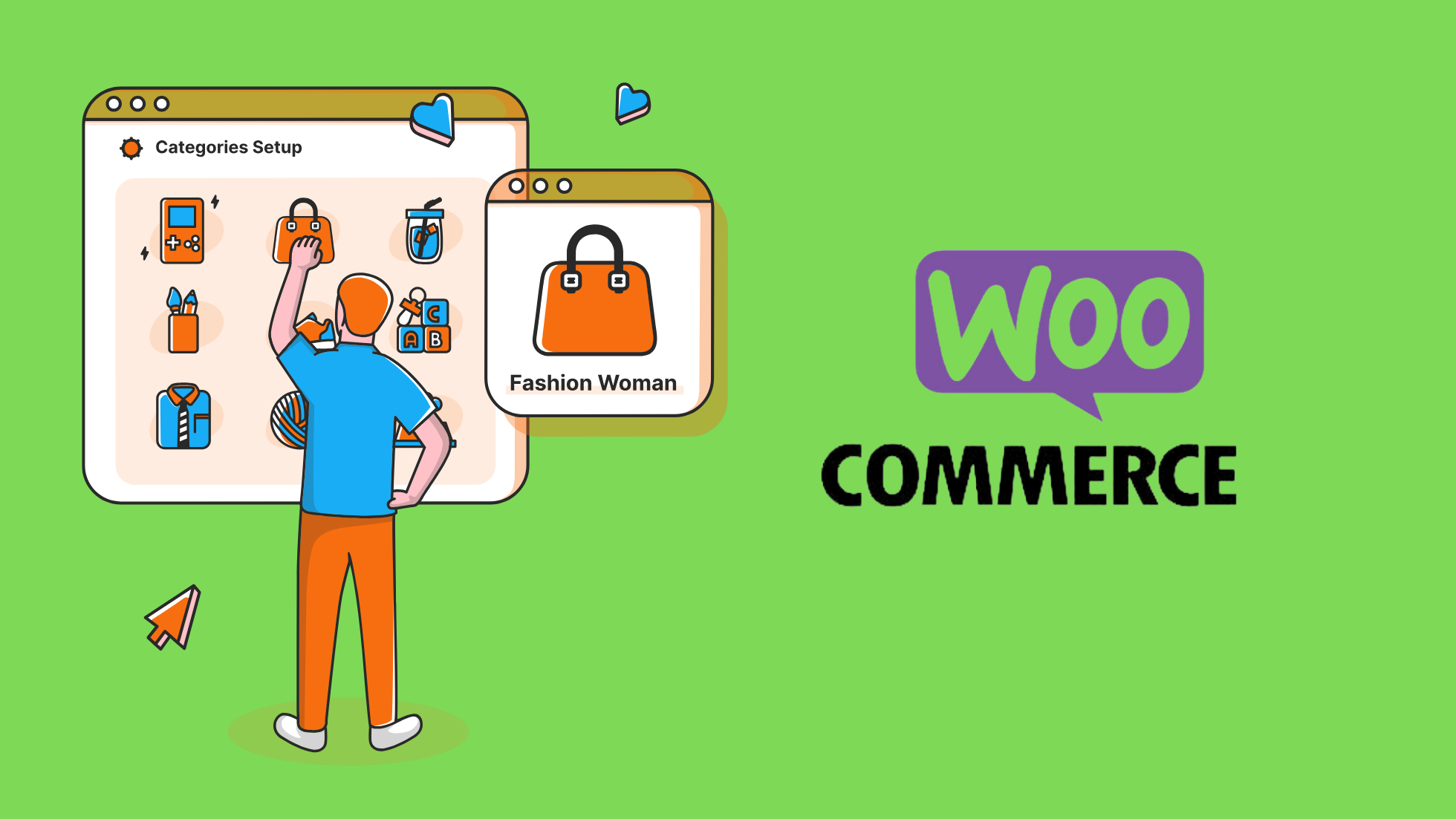
Key Features of WooCommerce
- Easy-to-use, drag-and-drop store builder
- Supports third-party marketplace integration (Amazon, eBay, etc.)
- Multiple payment options (PayPal, Stripe, Authorize.net, etc.)
- Complete control over your store's data
- Access to thousands of WordPress themes and plugins
- SEO-friendly structure to help rank better on Google
- Fast and secure for smooth shopping experiences
Pros of Using WooCommerce
- Beginner-friendly interface
- Free WordPress plugin with full customization
- Full control over your store's data and design
- Thousands of themes and extensions available
- Strong security features
- SEO-optimized for better search rankings
- Fast performance, ensuring quick page loading
Cons of Using WooCommerce
- Extra costs for hosting, domain, and security
- Requires setup and maintenance
- Some advanced features need paid extensions
Magento – A Powerful Choice for Growing Businesses
Magento is a feature-rich eCommerce platform trusted by businesses of all sizes, from startups to global brands. It's an open-source platform, meaning you can download and use it for free. However, there are also paid versions that offer more advanced features for businesses that need extra power and flexibility.
What makes Magento stand out is its ability to handle large product catalogs, complex customizations, and high-traffic stores. It's widely used because it gives business owners full control over their online store while offering a vast range of extensions and add-ons to enhance functionality.
Customization & Features that Make Magento Unique
One of Magento's biggest strengths is its flexibility. You can customize almost everything, from store layout to product pages, checkout process, and customer experience. There are thousands of extensions available, allowing you to add customer reviews, advanced search options, personalized recommendations, and more.
Another great feature is Magento's strong search functionality. Customers can quickly find what they're looking for using a smart search bar, improving the shopping experience.
Mobile-Friendly & SEO-Optimized
Having a mobile-friendly website is essential in today's world, and Magento makes sure your store runs smoothly on smartphones and tablets. A well-optimized mobile store not only helps with customer experience but also boosts rankings on search engines like Google, making it easier for shoppers to find you.
Personalization & Customer Insights
Magento helps businesses understand their customers better by offering customer segmentation and personalization tools. This means you can group shoppers based on their interests, past purchases, or browsing behavior and offer them tailored promotions or product recommendations. Studies show that personalized shopping experiences can boost conversion rates by up to 50%!
The platform also comes with built-in analytics and reporting tools to track sales, customer activity, and overall store performance. This helps you make data-driven decisions to improve your business. Additionally, Magento integrates with Google Analytics, giving you even more insights into visitor behavior.
Marketing & Promotions Made Easy
Magento offers powerful marketing and promotion tools that help attract and retain customers. You can:
- Create discounts & special offers for repeat customers.
- Run promotions for seasonal sales or product launches.
- Offer gift cards and coupons to encourage more purchases.
- Advertise products on social media to drive traffic back to your store.
Seamless Checkout & Payment Options
A smooth checkout process is key to reducing cart abandonment, and Magento provides one of the best in the industry. Customers can quickly complete their purchases, while store owners can monitor transactions easily through the admin panel.
Magento supports multiple payment options, including PayPal, Stripe, and Authorize.net, ensuring secure and flexible payment processing.
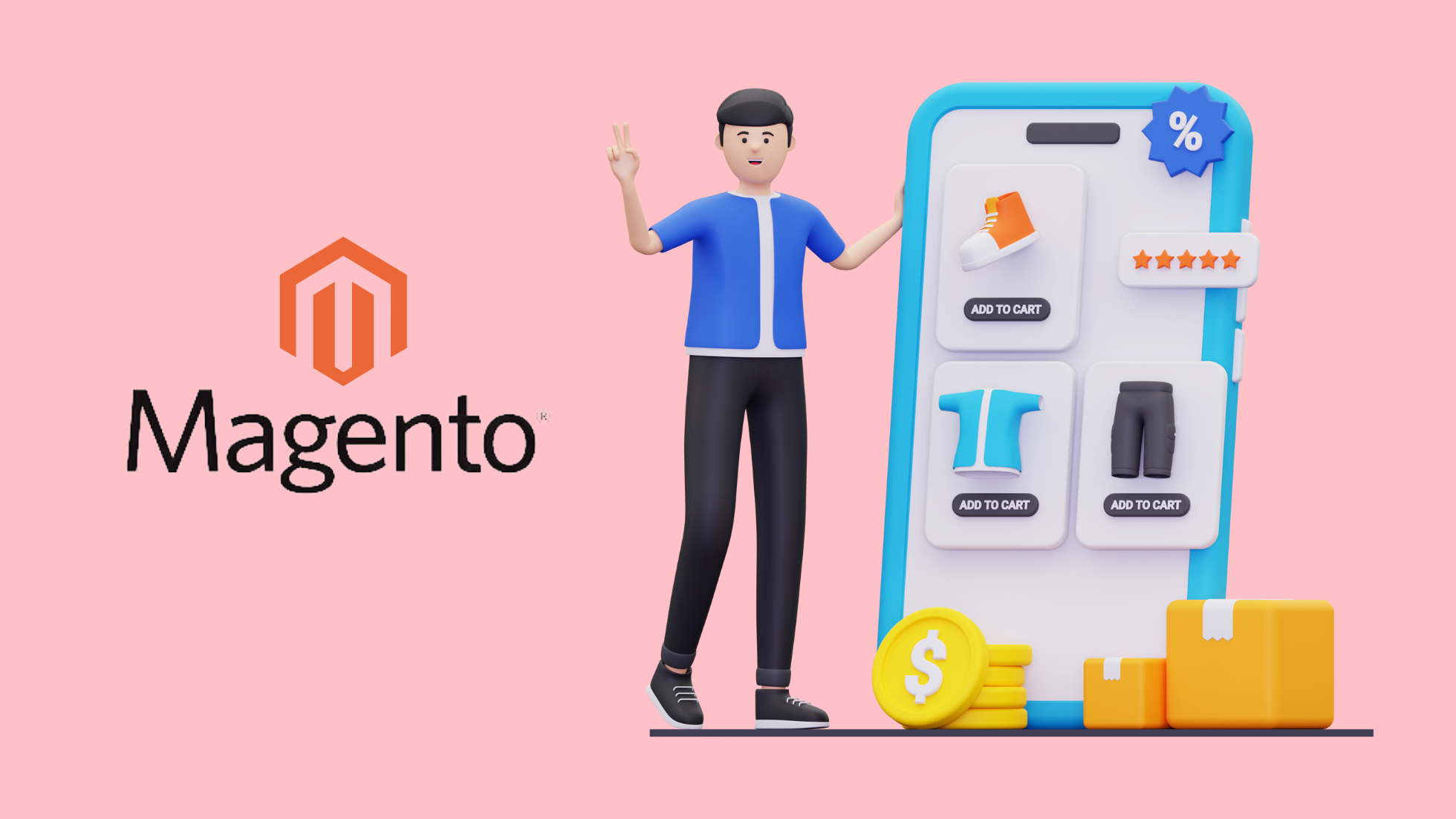
Key Features of Magento
- Sell both physical and digital products (like software, music, or courses).
- Multiple payment methods supported, including credit cards and digital wallets.
- User-friendly dashboard for managing inventory and orders.
- Advanced catalog management for better product organization.
- Powerful shipping & fulfillment tools for smooth delivery.
Pros of Using Magento
- Highly flexible & customizable
- Advanced features for large businesses
- Strong community support for developers
- Mobile-friendly design
- Can handle large traffic & product catalogs
Cons of Using Magento
- One of the most expensive platforms
- Requires technical expertise to set up
- Longer setup time compared to simpler platforms
- Hosting needs to be managed separately
- Limited customer support for free version
BigCommerce – A Scalable eCommerce Solution for Growing Businesses
BigCommerce is a powerful cloud-based eCommerce platform that makes it easy for businesses of all sizes to set up an online store, manage inventory, and boost sales. Whether you’re just starting or expanding your business, BigCommerce offers a wide range of built-in tools to help you grow.
With mobile-friendly designs, SEO features, and security compliance, it provides a solid foundation for online retailers. Plus, it allows you to sell across multiple channels, including Facebook, Instagram, Amazon, and eBay, all from one dashboard.
Flexible Plans & Essential Features
BigCommerce offers different plans to suit various business needs. Even the basic plan includes:
- Unlimited products and categories
- Built-in coupons & discount codes
- Abandoned cart recovery emails
- A simple one-page checkout
- Real-time shipping rate calculations
No matter which plan you choose, your store will be fully responsive, ensuring it works smoothly on mobile, tablet, and desktop devices.
Easy Integrations & Customization
BigCommerce makes it easy to customize your store. You can either use pre-designed templates or create your own layout. The platform also connects with over 150+ apps and services, helping you manage everything from inventory and payments to customer support and marketing.
Need extra features? You can add tools for SEO, analytics, or live chat to improve your store’s performance.
Sell on Multiple Platforms from One Place
BigCommerce helps businesses expand their reach by connecting their store to various sales channels:
- Social Media – Sell directly on Facebook, Instagram, and Pinterest.
- Marketplaces – List your products on Amazon, eBay, and more.
- Multi-language Support – Translate your store into 30+ languages to attract international buyers.
- This makes it easier to manage everything from one place, so you don’t need separate accounts for each platform.
Security & SEO Optimization
Security is a priority for BigCommerce. Every store includes:
- SSL encryption for safe transactions
- PCI compliance to protect customer data
- Secure payment gateways like Stripe, PayPal, and Braintree
For better online visibility, BigCommerce offers built-in SEO tools that help your store rank higher on search engines like Google. You also get detailed performance reports to track visitor activity and sales trends.

Key Features of BigCommerce
- Unlimited product listings with organized categories
- Abandoned cart recovery to bring back lost sales
- One-page checkout for a smooth buying experience
- Real-time shipping cost estimates
- Over 150+ integrations for payments, marketing, and support
- Multi-channel selling (Amazon, eBay, social media)
- Multi-language support for international customers
- SEO & analytics tools to track store performance
Pros of Using BigCommerce
- Free 15-day trial to test the platform
- No limits on product listings
- Built-in blog for content marketing
- Flexible coupons & discount options
- Abandoned cart recovery to boost conversions
Cons of Using BigCommerce
- Extra cost for advanced abandoned cart recovery
- Limited customization options in free templates
- No built-in shipping discounts
- Limited font selection for store design
- No RSS feed support for the built-in blog
eCommerce Platform Showdown: 8 Key Factors to Consider
When choosing an eCommerce platform, it's important to compare them based on factors that truly impact your business. Below, we break down the eight most important areas where WooCommerce, Magento, BigCommerce, and Shopify compete:
1. Pricing
2. Features
3. Performance
4. Ease of Use
5. Scalability
6. Customization
7. Security
8. SEO
Let's take a closer look at how each platform performs in these categories.
1. Pricing – Which Platform Gives You the Best Value?
Cost plays a big role when deciding on an eCommerce platform. Here's how they compare:
Shopify and BigCommerce offer fixed monthly pricing plans, making it easy to budget for. Shopify starts at $29/month, while BigCommerce plans start at $29.95/month.
WooCommerce is free to install, but you'll need to pay for a domain name, hosting, security, and SSL certificates, which can add up.
Magento has a free version, but setting up and maintaining it can be costly. If you opt for Magento's premium version, it can cost anywhere from $22,000 to $40,000 per year, making it ideal for larger businesses.
Key Takeouts:
- Best for affordability: Shopify & BigCommerce
- Best for flexibility: WooCommerce
- Best for enterprise: Magento
2. Features – What Do You Get With Each Platform?
Each platform offers different features to help online stores grow:
WooCommerce is a WordPress plugin that provides flexibility but depends on additional extensions for advanced features.
Magento is highly customizable and great for large stores, offering advanced shopping cart and product management options.
BigCommerce provides a ready-to-use store with both self-hosted and cloud-hosted options, making it a solid choice for growing businesses.
Shopify is designed for ease of use, allowing even beginners to set up an online store without coding skills.
Key Takeouts:
- Best for customization: Magento & WooCommerce
- Best for ease of use: Shopify
- Best all-in-one package: BigCommerce
3. Performance – Which One Delivers the Fastest and Most Reliable Service?
Website speed and performance impact customer experience and sales. Here's how they rank:
Magento (since its update to Magento 2) has fast backend operations and optimized page loading.
WooCommerce depends on your hosting provider, but with the right setup, it delivers smooth performance.
BigCommerce handles high traffic well, making it a good option for businesses expecting large sales volumes.
Shopify's standard version is ideal for small businesses, but if you need more power, Shopify Plus is available for enterprise-level scaling.
Key Takeouts:
- Best for high performance: Magento
- Best for traffic handling: BigCommerce
- Best for small businesses: Shopify
4. Ease of Use – Which Platform is the Most Beginner-Friendly?
Setting up and managing an online store should be simple, especially for beginners.
Shopify wins for the easiest interface. The setup is quick, and no coding is required.
WooCommerce is user-friendly, especially for those familiar with WordPress.
BigCommerce has a well-designed dashboard, but it's not as beginner-friendly as Shopify.
Magento has the steepest learning curve, requiring technical skills or a developer.
Key Takeouts:
- Easiest to use: Shopify
- Best for WordPress users: WooCommerce
- Most advanced (but complex): Magento
5. Scalability – Which Platform Grows Best With Your Business?
If you plan to scale your business, you'll need an eCommerce platform that can handle growth.
Magento is the most scalable, making it the best option for large businesses.
BigCommerce is also built for growth, but its interface can feel overwhelming at times.
WooCommerce works well for small and medium businesses but requires extra setup for high-traffic stores.
Shopify is scalable, but if you need advanced options, you'll have to upgrade to Shopify Plus.
Key Takeouts:
- Best for large-scale businesses: Magento
- Best for growing businesses: BigCommerce
- Best for startups: WooCommerce & Shopify
6. Customization – How Much Can You Personalize Your Store?
Your eCommerce platform should give you full control over your store's design and functionality.
WooCommerce, Magento, and BigCommerce offer deep customization, allowing businesses to create unique store designs.
Shopify has limited customization unless you upgrade to Shopify Plus.
Key Takeouts:
- Most customizable: Magento & WooCommerce
- Best for pre-built themes: Shopify
- Best for flexibility: BigCommerce
7. Security – Which Platform Keeps Your Store and Customers Safe?
All four platforms prioritize security, but there are differences:
Shopify and BigCommerce include built-in SSL certificates, ensuring safe transactions.
WooCommerce and Magento require you to set up SSL certificates manually, which might require extra effort.
Key Takeouts:
- Best for built-in security: Shopify & BigCommerce
- Requires manual setup: WooCommerce & Magento
8. SEO – Which Platform Helps Your Store Rank Higher?
Search Engine Optimization (SEO) helps drive organic traffic to your store.
WooCommerce and Shopify offer strong built-in SEO tools, making it easier to optimize content.
BigCommerce has some SEO features, but they are more limited.
Magento requires expert-level SEO knowledge to be effective.
Key Takeouts:
- Best for SEO: WooCommerce & Shopify
- Best for enterprise SEO: Magento
- Needs improvement: BigCommerce
Final Comparison at a Glance
| Feature | Shopify | WooCommerce | Magento | BigCommerce |
|---|---|---|---|---|
| Best for | Small businesses & startups | Small to medium businesses | Enterprise-level businesses | Growing businesses |
| Pricing | Affordable monthly plans | Free (but extra costs for hosting, domain, SSL, etc.) | Free version + Expensive premium | Affordable monthly plans |
| Ease of Use | Very easy | Easy for WordPress users | Difficult (requires developers) | Medium |
| Scalability | Needs Shopify Plus | Limited without extra hosting | Highly scalable | Average scalability |
| Customization | Limited | Medium | High | High |
| Security | Built-in SSL | Needs manual SSL setup | Needs manual SSL setup | Built-in SSL |
| SEO | Strong | Strong | Requires expert help | Basic |
Final Verdict – Which eCommerce Platform Stands Out?
After evaluating WooCommerce, Shopify, Magento, and BigCommerce, here's how they rank based on ease of use, features, pricing, and scalability:
1st Place – Shopify
2nd Place – WooCommerce
3rd Place – Magento
4th Place – BigCommerce
Each platform has its own strengths, and the difference in rankings is small but meaningful. The best platform for your business depends on your needs, budget, and level of technical expertise.
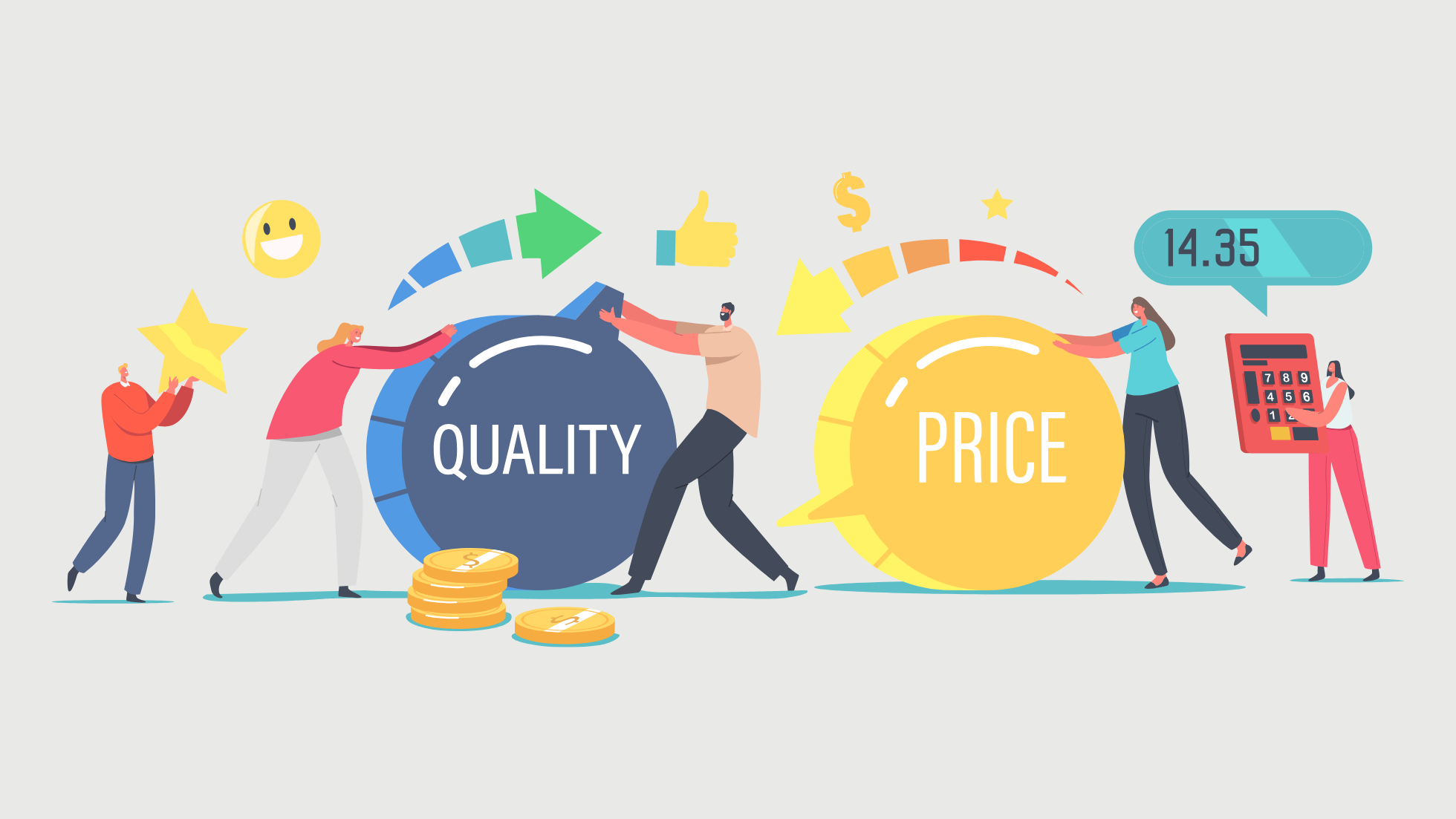
Which eCommerce Platform is Right for You?
Shopify – The best platform for beginners and growing businesses. It offers an easy setup, built-in marketing tools, and secure payment processing. If you want a store that's simple to manage without dealing with technical complexities, Shopify is your best bet.
WooCommerce – A great choice for WordPress users who want full control and flexibility over their store. It's free to use, but you'll need to pay for hosting, security, and plugins. Perfect for those who like customization and don't mind a little extra setup.
Magento – A powerful option for large businesses that need advanced customization and scalability. Best suited for companies with development resources to create a fully personalized online store.
BigCommerce – A solid all-in-one solution for businesses looking for integrated tools, multiple sales channels, and strong security features. While it's a great platform, it has fewer customization options compared to Magento and WooCommerce.
Making the Right Choice for Your Business
Still unsure about Shopify vs. WooCommerce vs. Magento vs. BigCommerce? The best platform depends on:
- Your budget – Shopify and BigCommerce offer fixed pricing, while WooCommerce and Magento can have variable costs.
- Your technical skills – Shopify is the easiest, while Magento requires developer support.
- Your business goals – WooCommerce and Magento are best for scalability, while Shopify and BigCommerce are ready-to-use solutions.
We hope this comparison helped clarify your options! If you have any thoughts, drop a comment below—we'd love to hear your take. Need expert help setting up your eCommerce store? Get in touch, and let's make your online business a success!

Shivam Sharma
About the Author
With over 13 years of experience in software development, I am the Founder, Director, and CTO of Zestminds, an IT agency specializing in custom software solutions, AI innovation, and digital transformation. I lead a team of skilled engineers, helping businesses streamline processes, optimize performance, and achieve growth through scalable web and mobile applications, AI integration, and automation.
Stay Ahead with Expert Insights & Trends
Explore industry trends, expert analysis, and actionable strategies to drive success in AI, software development, and digital transformation.
